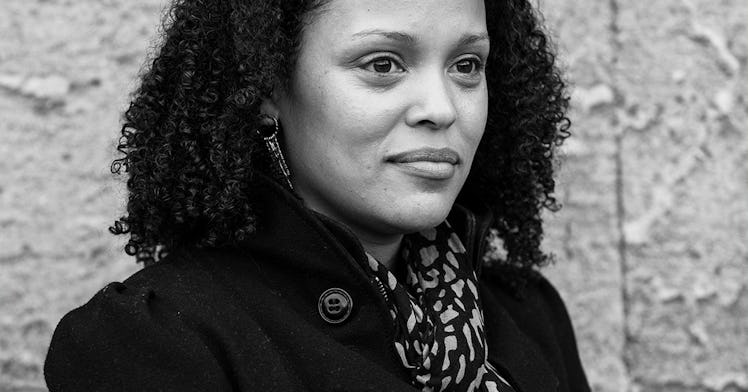Jesmyn Ward’s Essay on Losing Her Husband During COVID Is Essential Reading Right Now
The essay is essential reading.

With all the uncertainly created by the COVID-19 pandemic, sometimes it’s easy for parents to get lost in a sea of numbers. But, it’s important to cut through all the statistics with real stories about real families.
Yesterday in Vanity Fair, an essay written by author Jesmyn Ward was published in the September 2020 edition of the online magazine. Jesmyn Ward is, of course, an accomplished and critically acclaimed novelist. Salvage the Bones, Sing, Unburied, Sing, and Where the Line Bleeds, among many other books, have earned her accolades and awards. She won the National Book Award for Fiction, she was a MacArthur fellow. Her accomplishments are too great to list here. The essay, just published yesterday, is no different. And it is also — amid the COVID-19 pandemic, the widespread, global protests against police violence and in affirmation of the Black Lives Matter movement, and general civic unrest — essential reading.
The essay begins with Ward noting that her husband died in January. It’s unclear — or at least not explicitly confirmed — that her husband had contracted COVID-19. His official cause of death, after a week of what was an unconfirmed flu, was “acute respiratory distress syndrome.” Ward lost her husband, only 33 years old, months before people would understand COVID-19 or even begin to take it seriously.
“Without his hold to drape around my shoulders, to shore me up, I sank into hot, wordless grief. Two months later, I squinted at a video of a gleeful Cardi B chanting in a singsong voice: Coronavirus, she cackled. Coronavirus. I stayed silent while people around me made jokes about COVID, rolled their eyes at the threat of the pandemic… My children and I awoke at noon to complete homeschooling lessons. As the spring days lengthened into summer, my children ran wild, exploring the forest around my house, picking blackberries, riding bikes and four-wheelers in their underwater. They clung to me, rubbed their faces into my stomach, and cried hysterically: I miss Daddy, they said. Their hair grew tangled and dense. I didn’t eat, except when I did, and then it was tortillas, queso, and tequila.”
More than a meditation on Ward’s personal grief, the piece does the work of meditating on personal grief alongside the grief of the collective in the aftermath of the murder of George Floyd nad protests that rocked first Minneapolis, and then the world, in the aftermath of his death. For Ward, the personal and collective grief swirl around one another. And how could they not?
“I cried in wonder each time I saw protest around the world because I recognized the people. I recognized the way they zip their hoodies, the way they raised their fists, the way they walked, the way they shouted. I recognized their action for what it was: witness. Even now, each day, they witness. They witness injustice. They witness this America, this country that gaslit us for 400 fucking years. Witness that my state, Mississippi, waited until 2013 to ratify the 13th Amendment. Witness that Mississippi didn’t remove the Confederate battle emblem from its state flag until 2020.”